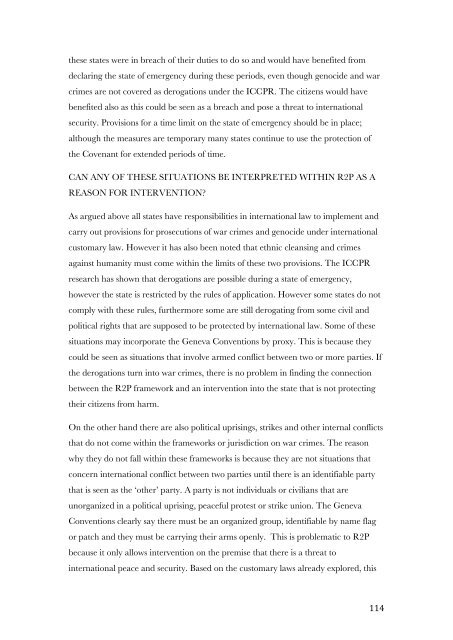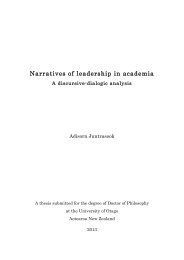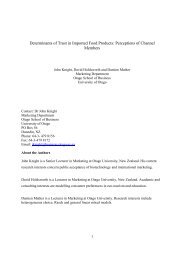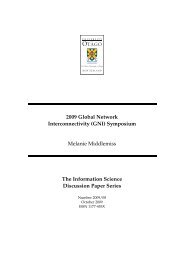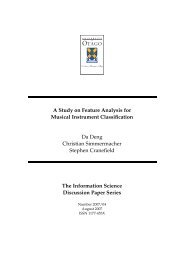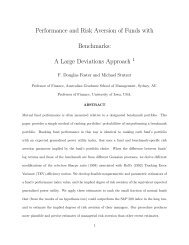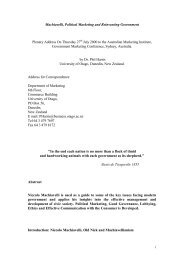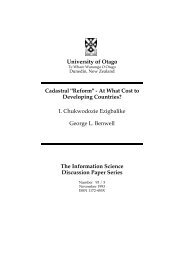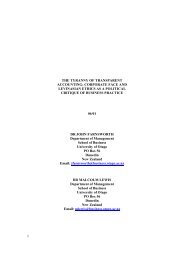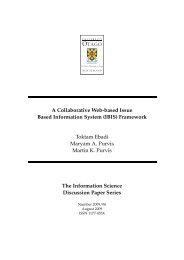Where is R2P grounded in international law? Anne-Marie Judson A ...
Where is R2P grounded in international law? Anne-Marie Judson A ...
Where is R2P grounded in international law? Anne-Marie Judson A ...
You also want an ePaper? Increase the reach of your titles
YUMPU automatically turns print PDFs into web optimized ePapers that Google loves.
these states were <strong>in</strong> breach of their duties to do so and would have benefited from<br />
declar<strong>in</strong>g the state of emergency dur<strong>in</strong>g these periods, even though genocide and war<br />
crimes are not covered as derogations under the ICCPR. The citizens would have<br />
benefited also as th<strong>is</strong> could be seen as a breach and pose a threat to <strong>in</strong>ternational<br />
security. Prov<strong>is</strong>ions for a time limit on the state of emergency should be <strong>in</strong> place;<br />
although the measures are temporary many states cont<strong>in</strong>ue to use the protection of<br />
the Covenant for extended periods of time.<br />
CAN ANY OF THESE SITUATIONS BE INTERPRETED WITHIN <strong>R2P</strong> AS A<br />
REASON FOR INTERVENTION?<br />
As argued above all states have responsibilities <strong>in</strong> <strong>in</strong>ternational <strong>law</strong> to implement and<br />
carry out prov<strong>is</strong>ions for prosecutions of war crimes and genocide under <strong>in</strong>ternational<br />
customary <strong>law</strong>. However it has also been noted that ethnic cleans<strong>in</strong>g and crimes<br />
aga<strong>in</strong>st humanity must come with<strong>in</strong> the limits of these two prov<strong>is</strong>ions. The ICCPR<br />
research has shown that derogations are possible dur<strong>in</strong>g a state of emergency,<br />
however the state <strong>is</strong> restricted by the rules of application. However some states do not<br />
comply with these rules, furthermore some are still derogat<strong>in</strong>g from some civil and<br />
political rights that are supposed to be protected by <strong>in</strong>ternational <strong>law</strong>. Some of these<br />
situations may <strong>in</strong>corporate the Geneva Conventions by proxy. Th<strong>is</strong> <strong>is</strong> because they<br />
could be seen as situations that <strong>in</strong>volve armed conflict between two or more parties. If<br />
the derogations turn <strong>in</strong>to war crimes, there <strong>is</strong> no problem <strong>in</strong> f<strong>in</strong>d<strong>in</strong>g the connection<br />
between the <strong>R2P</strong> framework and an <strong>in</strong>tervention <strong>in</strong>to the state that <strong>is</strong> not protect<strong>in</strong>g<br />
their citizens from harm.<br />
On the other hand there are also political upr<strong>is</strong><strong>in</strong>gs, strikes and other <strong>in</strong>ternal conflicts<br />
that do not come with<strong>in</strong> the frameworks or jur<strong>is</strong>diction on war crimes. The reason<br />
why they do not fall with<strong>in</strong> these frameworks <strong>is</strong> because they are not situations that<br />
concern <strong>in</strong>ternational conflict between two parties until there <strong>is</strong> an identifiable party<br />
that <strong>is</strong> seen as the ‘other’ party. A party <strong>is</strong> not <strong>in</strong>dividuals or civilians that are<br />
unorganized <strong>in</strong> a political upr<strong>is</strong><strong>in</strong>g, peaceful protest or strike union. The Geneva<br />
Conventions clearly say there must be an organized group, identifiable by name flag<br />
or patch and they must be carry<strong>in</strong>g their arms openly. Th<strong>is</strong> <strong>is</strong> problematic to <strong>R2P</strong><br />
because it only allows <strong>in</strong>tervention on the prem<strong>is</strong>e that there <strong>is</strong> a threat to<br />
<strong>in</strong>ternational peace and security. Based on the customary <strong>law</strong>s already explored, th<strong>is</strong><br />
<br />
114


